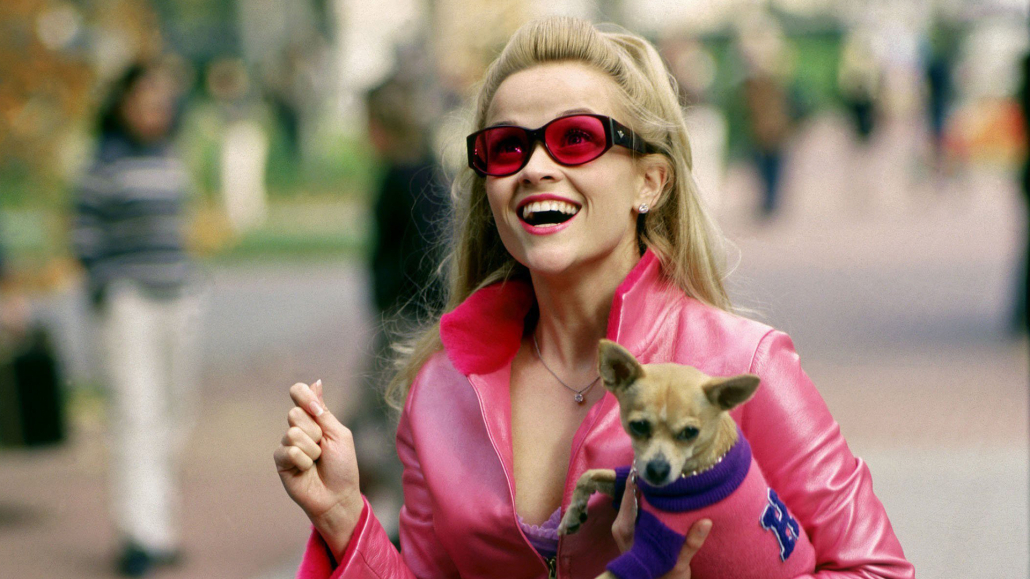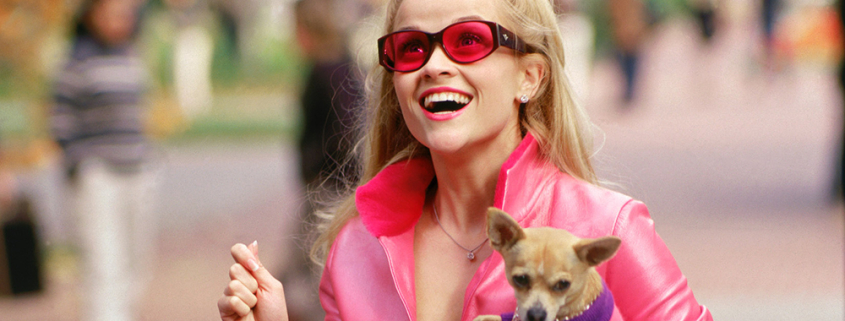Reel LA: ‘Legally Blonde’ calls Los Angeles to the stand

I’m not blonde, but, growing up, I could relate a lot to the film “Legally Blonde.” Mostly, I saw myself in the struggles of the protagonist Elle Woods (Reese Witherspoon), who faces a culture shock when she moves to Massachusetts from sunny Los Angeles to attend Harvard Law School. It wasn’t so much about the decision to follow her ex-boyfriend to law school, but Elle’s response to her boyfriend’s rejection of their relationship. She wanted to prove that she was worthy enough of her boyfriend, and later she wanted to prove that she was worthy enough for herself.
As the audience, we’re shown in the beginning that Elle Woods represents the quintessential L.A. sorority girl: blonde, pretty, wealthy and into fashion and beauty. However, because she conforms to this stereotype on the outside, people tend to only value her looks rather than her intelligence. It’s what ultimately makes Elle’s boyfriend, Warner Huntington III (Matthew Davis), break up with her, implying that she’s not right for someone who’s going to be a serious lawyer.
Now, I don’t quite relate to the whole being attractive portion or the acceptance to Harvard Law School part, but I empathize with Elle. Her dreams are often not viewed as worthy by other people around her. Her parents don’t agree with her decision to go to law school, telling her that she’s not cut out for it and that she is more suited for L.A. culture. Her friends are as supportive as they can be, but they also don’t understand why Elle wants to go to law school. Warner even tells her that she’s not smart enough for Harvard.
All these pressures build upon Elle, but she always rises above them. Sure, it’s an idealistic fictional narrative. Yet, as a young child who always felt I had to prove myself to others, I saw Elle as one of my role models. I aspired to have her attitude toward the obstacles in her life. Elle’s realization that she’ll never be enough for Warner leads to one of the most iconic moments of the film.
“I’ll show you how valuable Elle Woods can be,” she huffs at one point. It’s one of the most motivational montage sequences where Elle is working hard and becoming successful. Everyone around Elle thought her dream of attending law school was an illusion, but she made it a reality. True to legal fashion (in the most literal sense), she proved them wrong.
In my opinion, however, the best part of the film is when Elle wins her court case with her knowledge of hair perms, thanks to her distinctly L.A. lifestyle that she was constantly looked down upon for. Despite everyone dismissing her because of her background, Elle showed that being from L.A. was actually an asset for her study of law.
Where Elle initially failed trying to conform to the East Coast vibe, her recognition of her own strengths led her to success. Ultimately, Elle’s experiences and unique perspective make her a great lawyer. She inserts her own L.A. identity into the East Coast. In the end, Elle discovers that it’s not about choosing one or the other, but reconciling the two.
In my law, history and culture major, I sometimes find myself facing the same struggles and insecurities that Elle faced during her first year at Harvard. In classes, I wonder if someone who knows more about “Legally Blonde” than legal philosophies should be in the major at all. In the movie, Elle’s L.A. knowledge of popular culture and self care is viewed as superficial. Similarly, I wonder if my own inclination towards entertainment or a culture focused on illusions, isn’t productive or “serious” enough for a career of reality.
Then I end up having to overrule my own thoughts. I think about Elle Woods, who taught me that you don’t have to conform to what other people want you to be. Being yourself isn’t the most original message out there, but I believe that Elle would agree: There’s no one-size-fits-all to who you want to be.
There’s another lesson in the film about not being afraid to embrace your differences, but my insight from “Legally Blonde” is that there’s a thin line between illusions and reality. Just like how they’re depicted in the film, the two ideas aren’t mutually exclusive. Much like sustaining an objection, it’s necessary to maintain both reality and illusions. They’re important evidence not for a case, but for who you are — and who you can be.
Valerie Wu is a junior writing about film, television and visual culture in relation to Los Angeles. Her column, “Reel LA,” runs every other Monday.

